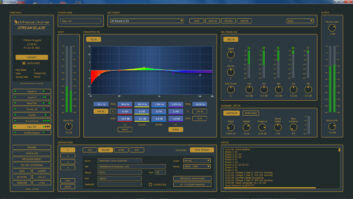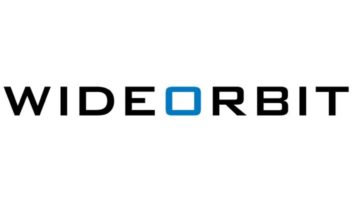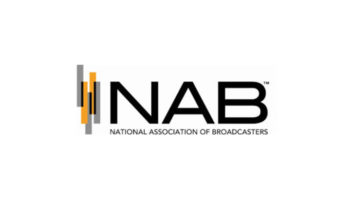PPM and the Voltair product have been Topic 1 this week for programmers and many engineers too.
Here’s a sampling of what some people have been saying.
Market researcher Adam R. Jacobson wrote that “the announcement, while not surprising, left some in the radio industry puzzled on what to do should they be using the system.” Read his post.
One reader emailed Radio World to say that he thinks Nielsen wants “to make Voltair obsolete as quickly as possible, IMO. Also, the new ‘in station monitor’ to replace the existing monitor that they spoke about that will have a ‘quality of encoding feature’ will be the exact moment they can tell who has a Voltair and who doesn’t and they then tell you remove it, as it violates your agreement for interference of the encoding process.”
Consultant Randy Kabrich blogged that “the saddest part of this is in my mind is that there are many people working very hard every single day. Some are giving over 100%. And for their efforts when the numbers have come out over the past year, their hard work goes un-noticed. ‘It was the Voltair.’” Here’s that post.
An industry engineer who listened to the webinar told us: “Their lab test charts suggest Voltair mostly helps only talk stations in listening environments where the interference/noise is greater than the audio content. … Clearly, the ratings increases borne out in many markets by many stations which deployed Voltair suggest otherwise. Perhaps they should have done real-world tests instead of relying on controlled lab tests with contrived noise sources.”
Over at Paragon Media, Larry Johnson opined: “Ultimately, only a quantifiable study of known stations with Voltair in use will prove or disprove its validity. Lab tests are good. Real world tests are better.” Read what he had to say.
Another RW reader questioned the data that was presented during the webinar, and continued: “The first chart of comparisons of the stock PPM encoder vs. Voltair processed encoding claim their golden ear panelists heard objectionable degradation with Voltair even at the lowest injection level of 5. Another very suspicious claim. In an age where most consumers of audio of any kind regard MP3-128 as ‘high fidelity,’ very minor or nuance levels of ‘fleeting audio degradation’ don’t concern most listeners or programmers.”
An engineer wrote: “Their proposed ‘improvements’ to the strength of the PPM encoded watermarking in their next generation of encoders will be very interesting to hear about and compare with how Voltair does this. So far, it’s only a vaporware promise. But it’s obvious Nielsen saw the need to do something about the issue of weak watermarking quickly and to dissuade stations from buying Voltair. Dr. Barry Blesser [at 25-Seven Systems/Telos Alliance] has no doubt heavily protected his invention with pending patents. If Nielsen uses even a hint of any of his technology, we could easily see litigation.”
A reader comment posted to RW: “Let’s consider the broadcaster’s POV. As a hypothetical, consider an Atlanta station. A $300 million market. Now, if that station can increase its share 1 point attributed to the Voltair, and if that station simply sells share, a year of Voltair is worth 3 million scoots. So, OK, next year everybody has one and we’re back to parity. They still made 3 million on a 15K investment. I believe I’d tell Neilsen to go pack sand and see how quickly I could hook the thing up.”
And Dave Paulus, general manager of MAX Media in Virginia Beach, Va., sent us this letter to the editor: “First and foremost from me, I’m pleased that Nielsen finally took this step to speak to this vitally important industry issue. It took much longer than most wanted, but they did address it. … That being said, there are a lot of questions that remain, the biggest one in my mind is what does ‘Nielsen does not support the Voltair product’ really mean, like in ‘English’? Does it mean they may disqualify ratings that are in the ‘Voltair period,’ like (sort of) steroids in baseball? Does it mean go ahead and use them and admit to them you do so they can do a true study? Somewhere in between? When one of the FAQ’s they list on their own webinar is ‘Are we telling clients to remove the Voltair?’ and their answer is ‘We will not support the Voltair.’ I really would have liked them to answer their own question a bit better than that. Yes or no. … At the end of the day for me at least, they did what I personally wanted to see. They addressed it. I felt like that was incredibly important for the industry, agree or disagree with what they said. Now it’s up to the industry to decide if that answer(s) they heard was suitable for them.”
Post your own comment below.
Related:
Nielsen: “Nobody Should Be Interfering” With PPM Playing Field












